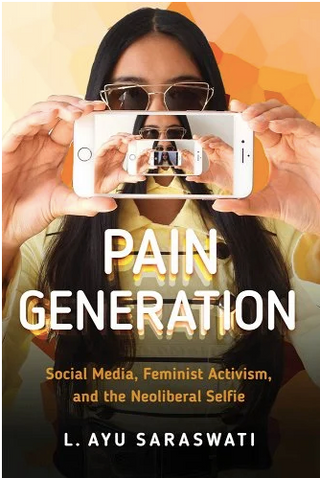Author: L. Ayu Saraswati | Paperback
Explores the perils and promise of feminist social media activism
Social media has become the front-and-center arena for feminist activism. Responding to and enacting the political potential of pain inflicted in acts of sexual harassment, violence, and abuse, Asian American and Asian Canadian feminist icons such as rupi kaur, Margaret Cho, and Mia Matsumiya have turned to social media to share their stories with the world. But how does such activism reconcile with the platforms on which it is being cultivated, when its radical messaging is at total odds with the neoliberal logic governing social media?
Pain Generation troubles this phenomenon by articulating a "neoliberal self(ie) gaze" through which these feminist activists see and storify the self on social media as "good" neoliberal subjects who are appealing, inspiring, and entertaining. This book offers a fresh perspective on feminist activism by demonstrating how the problematic neoliberal logic governing digital spaces like Instagram and Twitter limits the possibilities of how one might use social media for feminist activism.
Author: L. Ayu Saraswati | Paperback
Explores the perils and promise of feminist social media activism
Social media has become the front-and-center arena for feminist activism. Responding to and enacting the political potential of pain inflicted in acts of sexual harassment, violence, and abuse, Asian American and Asian Canadian feminist icons such as rupi kaur, Margaret Cho, and Mia Matsumiya have turned to social media to share their stories with the world. But how does such activism reconcile with the platforms on which it is being cultivated, when its radical messaging is at total odds with the neoliberal logic governing social media?
Pain Generation troubles this phenomenon by articulating a "neoliberal self(ie) gaze" through which these feminist activists see and storify the self on social media as "good" neoliberal subjects who are appealing, inspiring, and entertaining. This book offers a fresh perspective on feminist activism by demonstrating how the problematic neoliberal logic governing digital spaces like Instagram and Twitter limits the possibilities of how one might use social media for feminist activism.
Questions?



